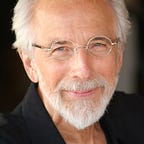How to Escape the Pressure of Conformity
Producing a New Experience of Spontaneity
In 1999 the film The Matrix was released. It depicted a dystopian future, degraded and miserable. In the film, reality, as perceived by most humans, is actually a simulated reality. Conscious machines, in order to subjugate the human population created this alternate cybernetic world. For humans unaware of their condition, their autonomy is an illusion.
We, too, are subjects deeply rooted in what I would describe as an enculturating matrix. Understanding how it works is critical to our ability to manage the enterprise of our autonomy.
Of course, one way or another, we are always going to find ourselves fixed in the set of social, political and cultural conditions. What enables us to escape from the pressure to mindlessly conform to the dictates of our enculturation is a governing philosophy to manage the quality of our autonomous enterprise.
It begins with recognizing that the transformative force of one’s philosophy is premised on accepting the paradox of the Enlightenment as it manifested in America:
We need to be bound to be free!
Yes, this premise seems paradoxical, and it is as transparent to us as was the simulated reality in which Keanu found himself. Yet distinguishing it and accepting it is our means to the rewards of a life well lived — to a life of our own design.
The efficacy of our philosophy hinges on a linguistic phenomenon. Whether we realize it or not, most of what we know is not a matter of observation.
What we see is prejudicial; we tend to see what we want to see and our attention is selective and often determined by our mismanaged and psychologistic ego-function.
What we actually know is what we say we know. What I mean is that the linguistic distinctions we make are not just argumentative, nit-picking semantics. They are the basis of what we know. It is this difference that makes the intentional description characteristic of our philosophy so important to our control of our autonomy.
- Question: So what is it that we need to know?
- Answer: In this land where, as I said, we need to be bound to be free, we must distinguish the liberating practices of America’s philosophy of the life lived autonomously.
We can acquire the fulfillment, satisfaction and equanimity that accompanies creating a life of our own design, even as we deliberatively take up the rules of a citizen-subject systemically embedded in the conditions and circumstances of the nation’s encompassing matrix. Why? Because freedom is a distinction of the American experiment and the promise of America’s philosophy.
To paraphrase Aristotle, the hard work of autonomy is its own reward. The innate spontaneity of animals is reflexively antagonistic and aggressive or furtive. In the human heart and head, this determination is mean and stingy and the hate and resentment embedded therein is a heavy, dispiriting burden. Yet with practice and over time, our restrained, refined and regulated autonomy produces a new experience of spontaneity and gives rise to a lightness of experience that enlivens who we are and those around us.
Yes, living autonomously is a hard thing to do. I believe when we focus on linguistic activities, which organize our philosophical oversight, we are able to gain control over our autonomy and contain the manner of our subjectivity and citizenship within the boundaries of the matrix.
This is an updated version of my original piece, “The Matrix Redux” posted on my blog.
If you like this article subscribe to my free bi-monthly blog. They are a timeless and timely gateway to the vocabulary, perspective and discipline that will support you in creating a life of your own design.
